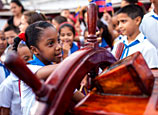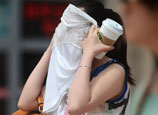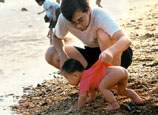
The traditional Chinese dowry
Dowry, the property and money brought by a bride to her marriage, is an ancient custom aimed at ensuring the bride is well-treated by her husband's family.
Today, of course, it's the man who pays the most.
These are the six rites involved in a traditional Chinese wedding.
- Nai cai (采纳) - A formal proposal
- Wen ming (问名) - Giving of the eight characters of the prospective bride (her birth year, month, day and hour, each expressed in two characters) to the bridegroom's family
- Na ji (纳吉) - Placement of the eight characters at the ancestral altar to confirm compatibility
- Na zheng (纳证) - Sending betrothal gifts to the bride and reciprocal gifts to the prospective bridegroom
- Qing qi (请期) - Selection of an auspicious wedding date
The woman's dowry may be delivered on the day of the betrothal or a few days before the wedding. There are also reciprocal gifts.
The bride's family today may deliver a costly dowry in the form of home furnishings and co-payment of the wedding banquet.
The traditional Chinese dowry included:
- Gold jewelry
- Bedding
- New clothes in a suitcase for the bride
- Tea set for the wedding tea ceremony
- Items for the baby, dish ware, wash basin, mirror, comb and personal items.
- Two pairs of red wooden clogs, wedding slippers, or bedroom slippers
- Sewing basket with even-numbered spools of colorful thread, needles, pincushions, scissors and sewing wax with auspicious words on it

















 Controversial audition of 'blind date with rich'
Controversial audition of 'blind date with rich'


![]()
